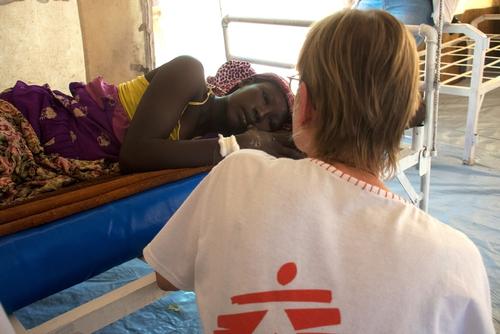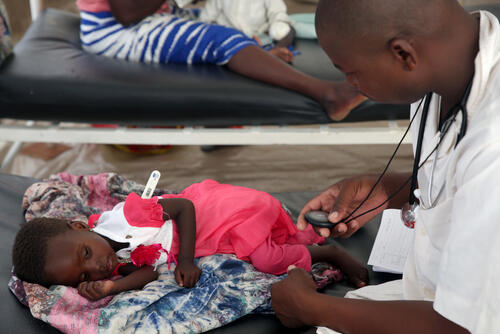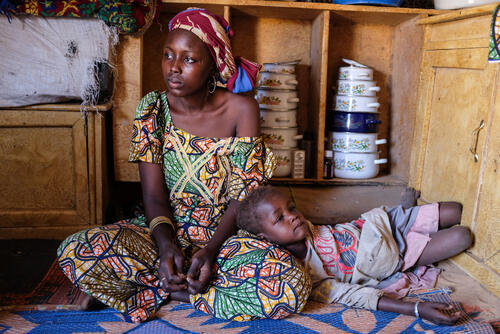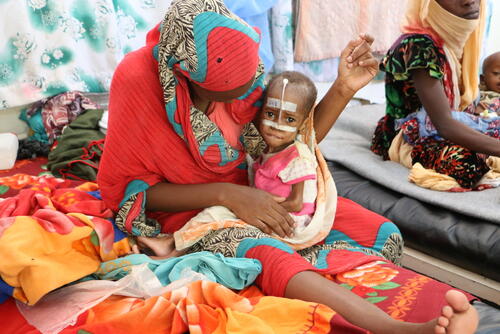Medecins Sans Frontieres (MSF) has completed the handover of its medical programmes in Am Timan, Salamat, Chad, to the Ministry of Public Health.
The official closure took place on 31 October. This marked the end of a progressive handover process.
“After 12 years of work in Am Timan in close partnership with the Ministry of Public Health, the time has come for MSF to withdraw in order to be able to help the most vulnerable, in Chad, the region and elsewhere,” said MSF’s head of mission, Mohamed Ali Omer.
MSF will remain active in Chad. MSF’s emergency response unit, which provided assistance during outbreaks of hepatitis E and cholera in Am Timan in 2017, is ready to do so again if necessary.
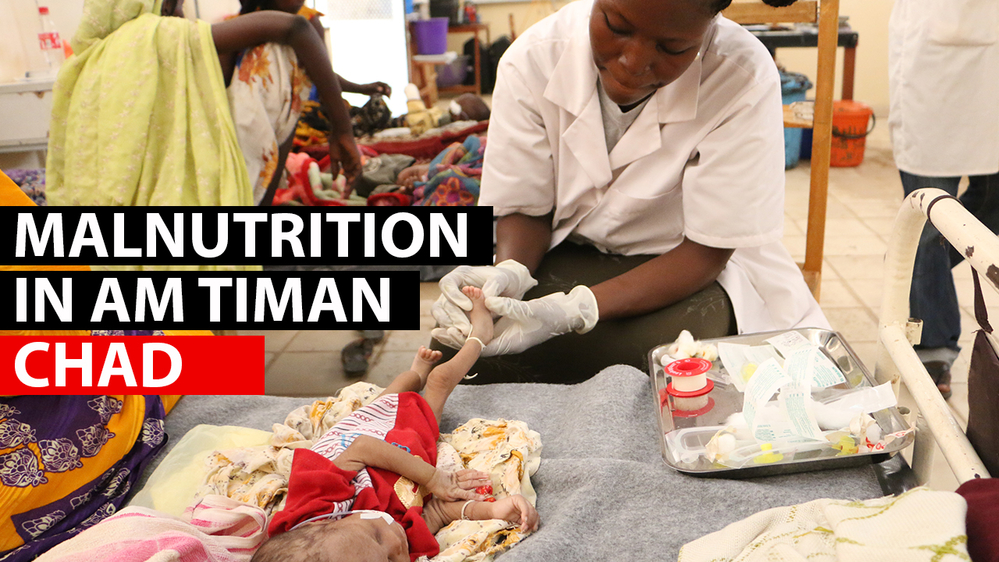
Am Timan hospital - Walk + Talk
MSF first responded to a nutritional crisis in Am Timan in 2006, and until now had maintained a consistent presence in the Salamat region, in southwestern Chad.
In 2010, MSF began providing care in the maternity and paediatric wards of Am Timan regional hospital. Over the years, MSF also supported intensive care, neonatology, laboratory and blood bank services, as well as managing nutrition programmes and HIV and TB care.
From 2010 until 28 October 2018, MSF teams provided more than 119,000 medical consultations, hospitalised more than 20,000 patients, cared for almost 40,000 children with severe acute malnutrition, assisted in over 17,500 births, admitted 800 patients to an HIV programme, and treated almost 800 cases of TB, including three cases of multidrug-resistant TB. These figures do not include mobile clinics.
MSF services in Am Timan since 2010
119,000
119,
40,000
40,
17,500
17,5
MSF also supported local health centres, where it ran general medical, antenatal and nutrition clinics. Through community outreach and education, MSF teams encouraged people to seek care early from local health centres when appropriate.
To improve the provision of healthcare in Am Timan, MSF provided continuous training to ministry staff at the regional hospital and surrounding health centres. Ahead of the handover, MSF donated buildings, equipment and medication.
“Thank you to everyone who has made MSF’s work in Am Timan over the years possible,” said Alexis Bakelage, MSF’s project coordinator in Am Timan. “To the Ministry of Public Health, with whom we have partnered closely, to local leaders and authorities, to all our staff, and to the people of Am Timan.”
MSF has been present in Chad since 1981 and continues to operate in the country.
In Moissala, MSF works on malaria treatment and prevention as well as in paediatrics. In Goré, MSF supports two health centres, and in N’Djamena, MSF supports the NGOs Alima and Alerta Santé to treat children with malnutrition. MSF’s emergency response unit is also based in N’Djamena and ready to respond quickly to outbreaks across the country.



